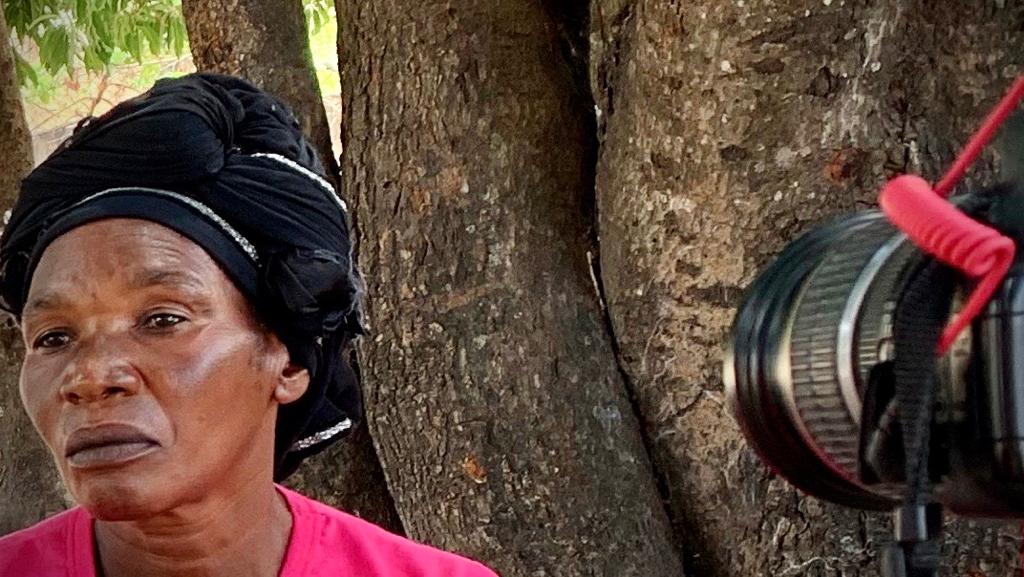|
When people asked my mum what I was doing for a living, she had serious problems answering. It has been always a bit like this; it is nothing new. The title Communication Specialist is so broad and, at the same time, so vague, that for someone flirting with her 70's, it requires a massive effort to understand its meaning. This confusion doesn't improve when she has to deal with the fact that I am working at a university of surgeons, in a research team, interviewing medical staff and filming in sub-Saharan hospitals. Therefore, when someone in the Sevillian town where she lives asked her, 'what is your son doing these days?', she gave a shrug and said, 'taking pictures and talking to people in Africa'. Fair enough.
Last week we had a chat about it. She seemed troubled. Apparently a neighbour went a bit further with her queries continuing with a 'but, what is he doing that for?', leaving my mum speechless. Wanting to be prepared for the next time, she wrote down a few questions, ready to squeeze from me the entire information of my working routine. Then, I was the one in trouble. I needed to translate the complexity of an European Union-four-year-funded project, involving four universities and two surgical societies from six different countries into something that made sense for my mother, who has never been in Africa or directly exposed to public health research and has no special interest in global surgery issues. —SURG-Africa is working to provide access to high-quality surgery in district hospitals—I told her—. It is providing training to doctors and non-doctors, anaesthetists, and nurses, who can operate in rural areas, where there are normally no surgeons at all. —Wait a second, non-doctors?—she sounded horrified—. How is that even possible? —Well, we previously implemented and supported a curriculum for university studies where non-doctors could be taught how to perform surgical operations, such as hernias, C-Sections, and fixing broken bones, among others. —But they don't have the skills of a surgeon! —They might not have the extensive education that specialist surgeons have but they have shown that they have the skills to operate and to do it very well. Silence at the other side of the line. I could practically hear my mum's brain processing the information, dealing with the prejudices that many people normally have about task-shifting. —For example—I told her, trying to be more specific—. Malawi has around 20 million people. There are around 50 specialist surgeons in the country and all of them live in the big cities, although 80% of the population live in rural areas. Don't you think that training people to perform surgeries in smaller rural hospitals is a good solution to solve the lack of surgical services in the country? —Why can't they travel to the city for the operation? I live 30Km from Sevilla and if I need an operation I have to go there—she argued. —You are right. But while you need an hour to reach the hospital, many people in Zambia, for example, need five hours, or ten, or even a whole day! And also rural hospitals, that normally don't have many resources, spend a lot of money sending patients to central hospitals in ambulances which are often not prepared for carrying sick patients. And once they are there, patients' relatives will have to camp at the hospital for days, even weeks, spending money they don't have. —Why do they have to camp? —Well, if you go to Madrid for an operation, would you like to go on your own? If I go with you I need to spend the night somewhere. They don't have space for relatives to spend the night with you in the room, like in Spanish hospitals, instead they sleep outside the hospital. —I see. And she did. Next day we talked she told me that she had found the same neighbour again in the supermarket. —I ran to her and said: 'My son works for a project that helps to make certain surgery services available in poor areas of Africa. They train people to do it so patients don't have to go to the big cities so they can stay close to their homes. And that is better and cheaper for everyone. —Well said—I responded proudly—. What did she reply? —That she didn't know you were a doctor.— I laughed—. Then I explained that you are not, that your work is taking pictures and talking to people in Africa. Fair enough. SURG-Africa is a complex project with a clear aim: to bring safe and sustainable surgery to rural areas. There are a number of academic papers explaining why implementing this is necessary, and also feasible; papers full of comprehensive figures and facts that back up our work so far. But we must not to forget that SURG-Africa is a project that has the ultimate purpose of improving people's lives at vulnerable times. This is why 'taking pictures and talking to people in Africa' is important, to portray their realities, to witness how patients benefited from an operation closer to home in the district hospital and how much that means to their families. This is why my mum understands that I travel to Africa to take pictures and to interview trainers, trainees and patients, among others, so I can produce material to show what is behind our funky logo and the enigmatic name of SURG-Africa, in order to establish a dialogue about what we do. For further questions, ask my mum. Let's get ready, #SURG-Africa2020 begins! Antonio Jaén is our Communication Specialist. Learn more about him here.
1 Comment
12/7/2024 03:51:44 am
What was the reaction of the speaker's mother when asked about their son's current activities?
Reply
Leave a Reply. |


 RSS Feed
RSS Feed